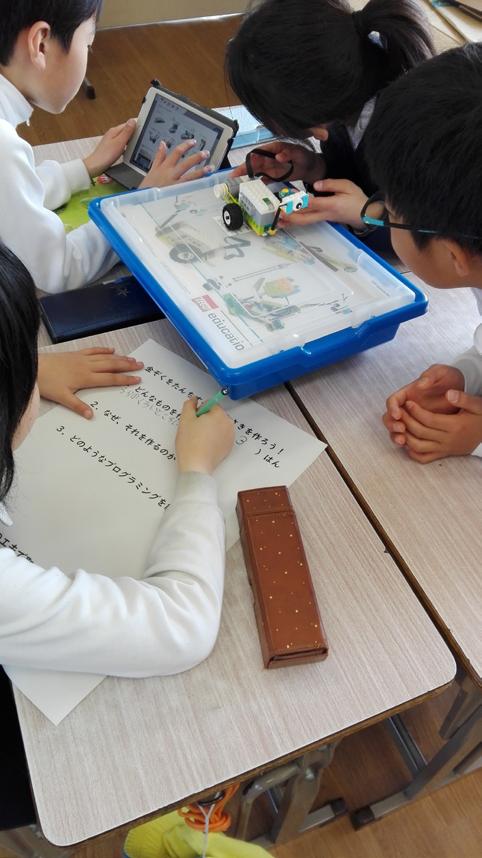
5 minute read
COSPAR Business Transformational Space Education and Outreach in the Heart of COSPAR
[Rosa Doran, Chair of Panel on Education]
How can we design powerful crossroads connecting the values and opportunities in space research with education and outreach?
Let’s take the different angles of each of these crucial areas.
Let’s start by taking a look at how COSPAR’s mission is aligned with societal values and priorities. Part of the COSPAR mission is to communicate to the public important, exciting results of space research and extend its benefits to society. Space research can have an inspirational and motivational effect on people, to pursue, for instance, a career in STEM.
Also included in COSPAR’s mission is the integration of diversity and gender equity in all of its activities, fully in line with the transformational vision, for education and the world of work, that is emerging strongly at a global level. Alongside this for COSPAR is international cooperation for promoting excellence in space research.
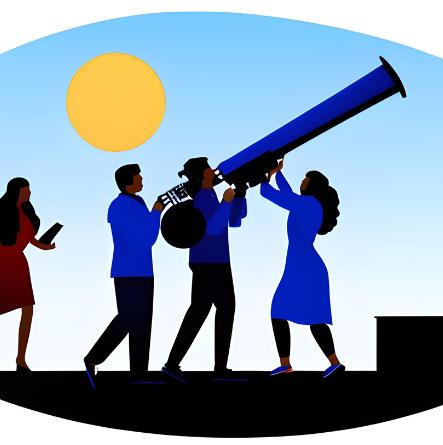
Let’s now look at what is going on in the world of education. Currently trending words are digital transition, STEAM education (science, technology, engineering, arts and mathematics), inquiry and project-based learning, virtual and augmented reality, maker spaces, etc. These trends are inviting schools to change the way curriculum content is delivered to students, to focus more on inter-multidisciplinary learning experiences. Students are prompted to embark on exploration paths that will eventually lead them to discover new ways of interacting with content knowledge while developing key skills. While being exposed to research based learning scenarios students will find multidisciplinary approaches to solve problems that integrate the relevant curriculum content.
"Students can use research images from our planet taken by satellites, and explore the area of their schools or communities"
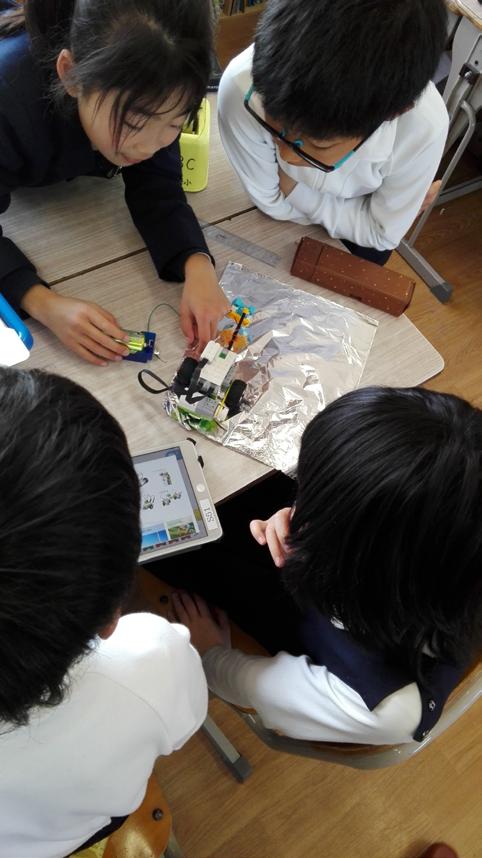
New technologies can transform the way students interact with content, as for instance learning about space missions, by visiting planets and spacecraft virtually. Students can use research images from our planet taken by satellites, and explore the area of their schools or communities and use the information to help create solutions to identified problems, use maker spaces to test ideas and create awareness campaigns for their communities, and so much more.
Now let’s cross both views, space research and education, and see how well we are doing right now. What are the successful crossroads bringing schools closer to space research? Space exploration opens a plethora of opportunities for embedding innovation in learning and facilitating a unique and relevant experience for the students:
• It sparks students’ curiosity and interest, opens the possibility of integrating research data and exploration while involving them in the interdisciplinary learning of curriculum content. COSPAR can play a major role in advising and contributing to an innovative curriculum design incorporating unique space-related educational activities.
• Space, by its very nature, requires adopting interdisciplinary approaches, which can easily be reproduced in the classroom. This can provide students with a holistic understanding of real-world applications.
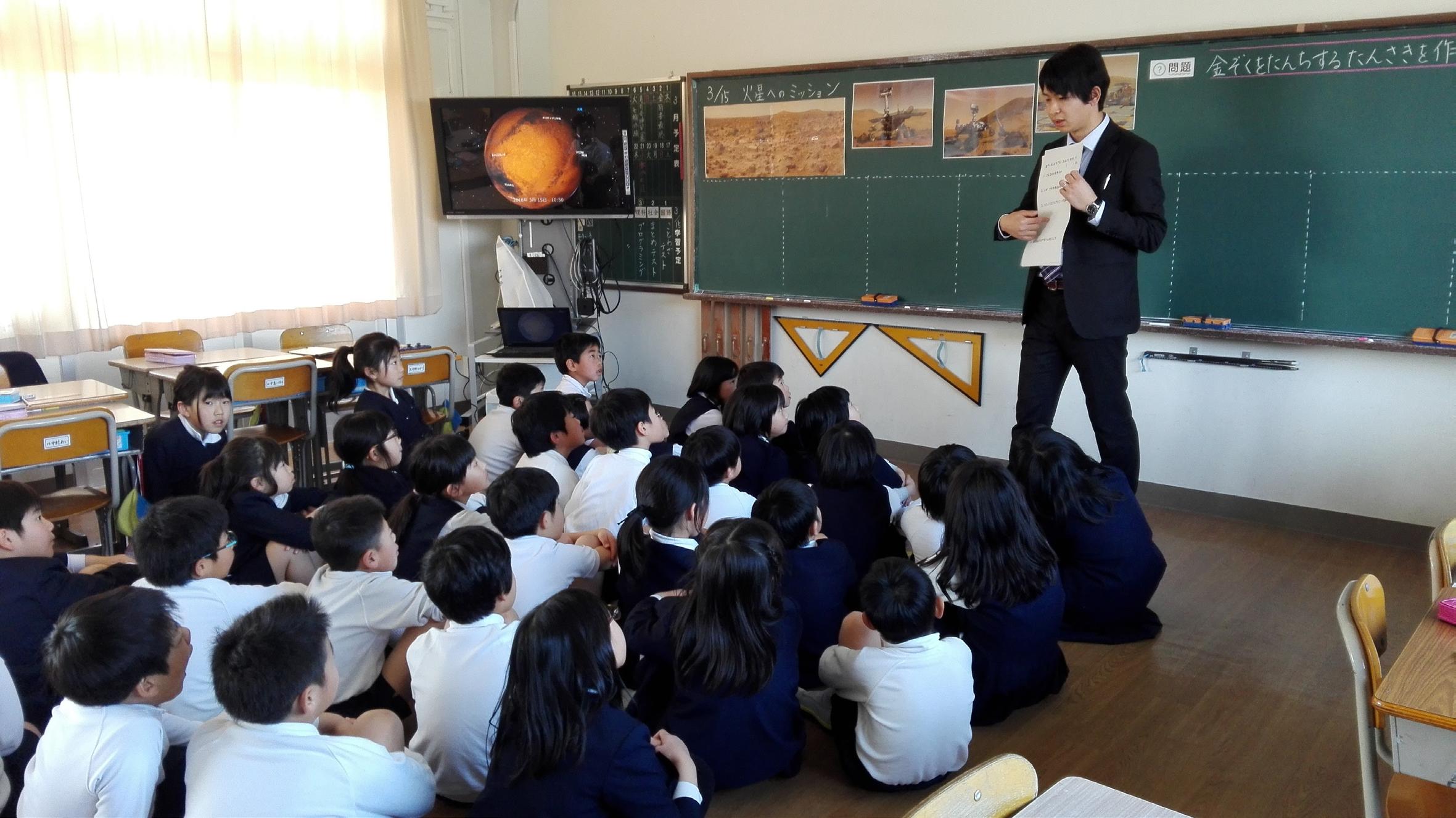
• Space is a continuous source of challenges and discoveries, it requires solving complex problems and frequently finding innovative solutions. Students can be an active part of this, by being, at a very early stage in their academic lives, involved in the search for solutions to existing problems, by participating in projects and actively contributing to various cutting edge fields. This will trigger and enhance their critical thinking and creative skills as well as improve their problem-solving skills.
• Significant advances in science require collaboration and cooperation. Exposing students to this reality and enabling international cooperation within classrooms around the globe will transform the way they perceive others. Joint space-related projects, implemented by COSPAR ambassadors in an endeavour without frontiers, can have a strong impact on diversity and inclusion. This can transform the perception students have about foreigners, can lead them to the realisation that we are just one species.
• Finally, space exploration can expand student awareness about our place in the cosmos and transform their perception of societal challenges such as climate change and sustainability, to name but a few.
Actively involving teachers in COSPAR training opportunities, transforming and preparing them to become COSPAR ambassadors and engaging them in scientific collaboration with the research teams of COSPAR will help turn this view of education into reality.
So where is COSPAR in this scenario? COSPAR is in a unique place to make a stand in the transformational power of space education. The space exploration sector can also greatly benefit from these crossroads and with some investment can expand these roads. It is worth remembering that the general public can also greatly benefit from gaining awareness of the power of space exploration and how it can bring us towards a more sustainable future. Space exploration is generally funded with tax payers’ money, so it is clear that the public should be aware of their investment and how this is important as well as beneficial to them as individuals.
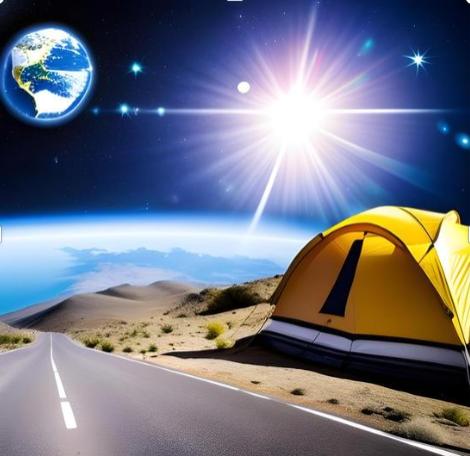
Keeping all of this in mind, COSPAR’s Panel on Education is ambitious. The Panel aims to adopt a more active approach towards its growth and impact within COSPAR, to broaden its target audience from educators to a whole school approach, involving all members of the schools and their local communities, to reach out to policy makers and to guarantee a deeper involvement of its members towards a common goal: transforming the world with the power of space education.
This will have a twofold effect: it will bring COSPAR closer to the public and bring more awareness to the target audiences about the importance and relevance of COSPAR. It will also fulfil the Panel’s vision of generating greater awareness of the importance of space exploration in our lives and how it is already impacting all of us. Needless to say that this is not a path that can be navigated alone, it requires the cooperation and collaboration of all the COSPAR Science Commissions and Panels and collaboration with other organisations that can benefit from and support the COSPAR activity in education and outreach. Efforts in this direction are already in place and with this article we invite everyone with ideas to enrich this partnership scheme to contact us.
Collaboration is a very powerful word and we hope that setting up partnerships with other organisations will have an exponentially beneficial impact. If you want to be part of this transformational moment, get in touch—the journey starts here.
LATEST NEWS: Erasmus+ Education Programme
The Panel of Education’s new approach is already underway with the recent successful proposal for an Erasmus+ programme on cooperation partnerships in school education. The EXpeditionary Program for Learning OppoRtunities in Analog Space Exploration (EXPLORE) is a 36-month project—starting 1 September 2023—to introduce a new trend of activities engaging students in space exploration experiences that meet the requirements of their STEAM curriculum. EXPLORE will invite students to engage in activities similar to existing analog missions that simulate Moon or Mars environments. Educators will receive training to deliver curriculum content and improve their knowledge of digital solutions, as well as student-centred, inclusive, equitable and accessible methodologies while implementing the project.
Stay tuned for more details and updates of this programme. Read the Press Release about the programme here.
Funded by the European Union. Views and opinions expressed are however those of the author(s) only and do not necessarily reflect those of the European Union or the European Education and Culture Executive Agency (EACEA). Neither the European Union nor EACEA can be held responsible for them.

